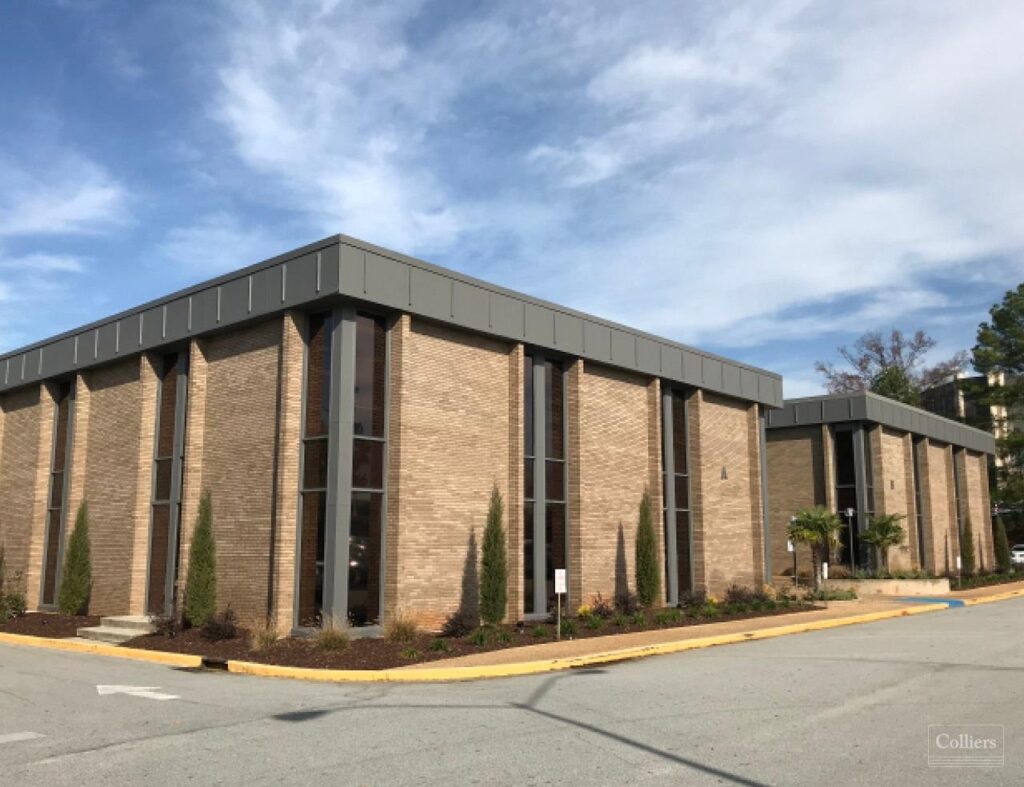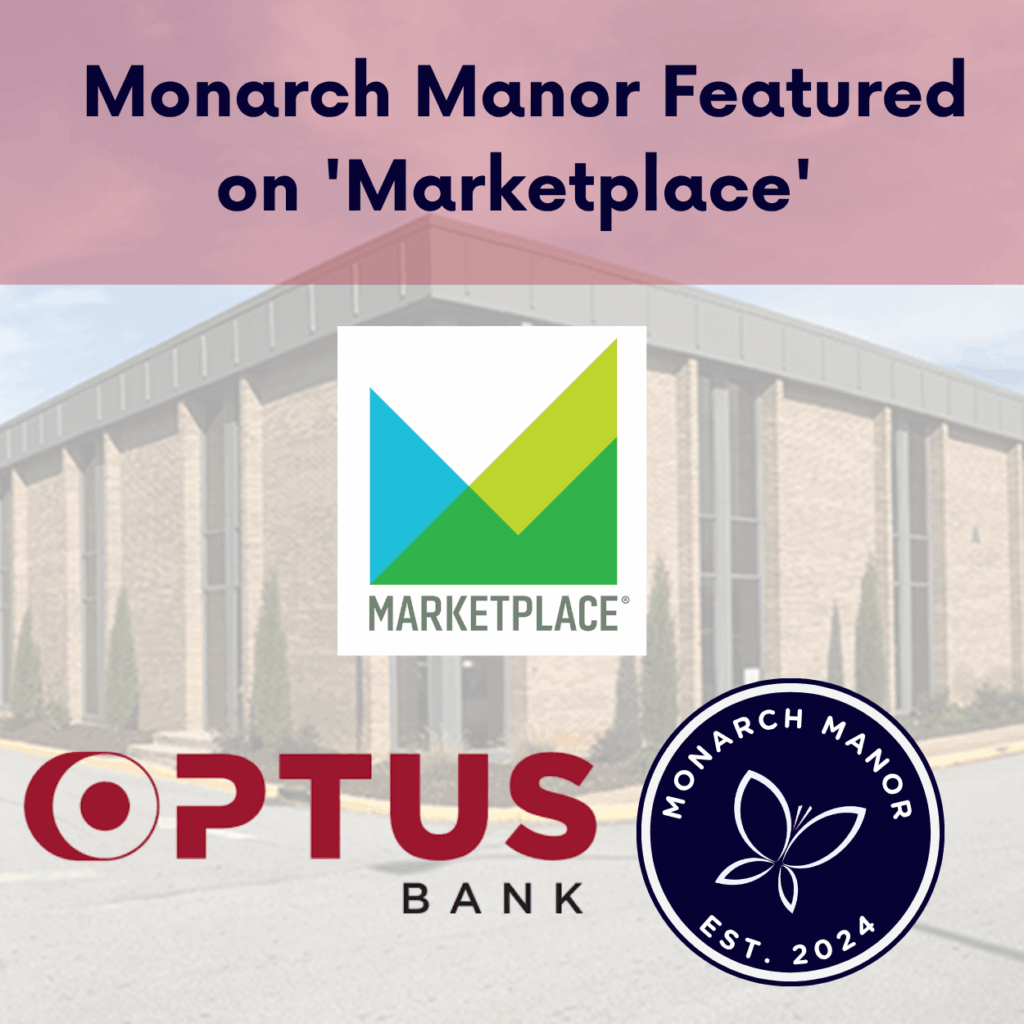
We’re proud to share this recent Marketplace article featuring Optus Bank and its role in expanding access to capital for underserved communities. The story includes Monarch Manor—our affordable senior housing project—as a powerful example of what’s possible when local investment meets real community need.
How one Black-owned lender turned big bank support into community loans
Original Story Date: May 19, 2025 Link to Story Here
By Justin Ho
About five years ago this week, George Floyd, a Black man in Minneapolis, was murdered by a white police officer. After the murder and the nationwide movement it inspired, several big banks, including JP Morgan Chase, Citibank, Bank of America and Wells Fargo, announced that they’d invest millions of dollars in small, Black-owned banks across the country, empowering those banks to make more loans to small businesses in underserved communities.
One of those businesses is Transitions Homeless Center, which runs a shelter in Columbia, South Carolina. The business recently took out a loan with the goal of providing affordable apartments for people who were unhoused, especially the elderly, veterans, and people with disabilities.
CEO Craig Currey said it was tricky finding a building that would work.
“When we started looking for property, it’s hard to find, like, an old nursing home,” Currey said. “That’s kind of what you want. But you could find office space.”
Transitions Homeless Center bought an old office complex about 10 minutes outside of downtown Columbia. It was sitting vacant after the pandemic, and Currey saw potential.
“It was like, ‘OK, hey, it’s a good price, we can do this, we can get the place, and we’ll convert the rooms,’” Currey said.
To buy the property, and turn the rooms into ADA-compliant living spaces, Transitions Homeless Center would need to borrow roughly $4 million.
“Transitions came to us, and we were able to help them navigate that financing,” said Reggie Webber, chief credit officer of Optus Bank in Columbia, the only Black-owned bank with headquarters in South Carolina.
Webber said this loan was more complex than a typical small business loan. That’s because much of Transitions Homeless Center’s revenue comes from donations and grants, so Webber had to do due diligence on those.
“What’s the timeline for the grants?” Webber said. “How much are the grants? What are the recurring revenue sources, right?
Complex loans like that one require a lot of staff with specialized skills, said Dominik Mjartan, Optus Bank’s vice chairman.
“For us to be able to make that loan, we have to have the human talent, we have to have the human capacity,” Mjartan said. “We have to have the underwriters, the analysts to run their numbers, we have to have the processors, the people that send out the statements, that monitor the loan, do the annual reviews on the loans.”
That’s where the big banks came in. In the year after George Floyd’s murder, Optus Bank received about $40 million-worth of investment, much of it from four big banks: Wells Fargo and JP Morgan Chase, which both declined comment for this story, as well as Bank of America and Citigroup, which didn’t respond to requests for comment.
Mjartan said their investments, known as Tier 1 capital, raised the bank’s legal lending limit. That meant it could actually lend out more money, pull in more revenue, and hire more staff.
“Without that Tier 1 capital, we would not have had the courage to hire talented people to make these more complex, more exotic, more unique community loans,” Mjartan said.
The loan helped Transitions Homeless Center bring on more staff, too.
“I just keep the hallways clean, the restroom, the laundry room,” said Hillary Hollerman, who also lives in the building.
Before that, Hollerman said he was unhoused for more than 10 years. About five months ago, Transitions Homeless Center offered him the job, and asked if he wanted to rent an apartment, too.
“They gave me the keys, I moved in here, and that night, I felt so good,” Hollerman said.
Hollerman says he makes about $14 an hour, which more than covers his food expenses and the rent on his place.
“The cabinet’s filled up, and a TV, I have a video game,” Hollerman said. “I have everything I need. I’m comfortable.”
So far, Transitions Homeless Center has built 11 apartments like this, with more to come. The entire complex can accommodate as many as 88 residents.
About Marketplace
Marketplace is a nonprofit public media outlet reaching over 10 million radio listeners and 1.6 million podcast listeners each week. Their mission is to raise the economic intelligence of the country by making business and economic news accessible and relevant to all communities. With award-winning reporting from bureaus across the U.S. and beyond, Marketplace centers voices often overlooked in financial news.
About Optus Bank
Optus Bank is a federally designated Minority Depository Institution and one of only about 20 Black-owned banks in the U.S. Based in Columbia, SC, Optus focuses on closing the racial wealth gap by expanding access to capital for underserved communities. As a mission-driven bank, they reinvest deposits into local businesses, housing, and community development projects like Monarch Manor.

